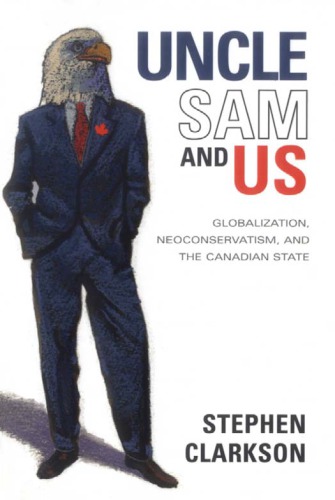

Most ebook files are in PDF format, so you can easily read them using various software such as Foxit Reader or directly on the Google Chrome browser.
Some ebook files are released by publishers in other formats such as .awz, .mobi, .epub, .fb2, etc. You may need to install specific software to read these formats on mobile/PC, such as Calibre.
Please read the tutorial at this link: https://ebookbell.com/faq
We offer FREE conversion to the popular formats you request; however, this may take some time. Therefore, right after payment, please email us, and we will try to provide the service as quickly as possible.
For some exceptional file formats or broken links (if any), please refrain from opening any disputes. Instead, email us first, and we will try to assist within a maximum of 6 hours.
EbookBell Team

4.8
54 reviewsBetween them, Brian Mulroney and Jean Chrétien radically altered the structure and functions of the federal government, first by signing and implementing major trade liberalization projects, and then by cutting back the size of their governments' budgets and the scope of their policies. Uncle Sam and Us analyzes the Mulroney-Chrétien era's impact on Canadian governance through two related factors, globalization from without and neoconservatism from within.
Stephen Clarkson begins his study by conceptualizing the present Canadian state as a five-tiered, nested system stretching from the municipal and provincial levels, through the federal government, and on to the new continental and global spheres of governance: in effect, he argues, the North American Free Trade Agreement and the World Trade Organization have added a 'supraconstitution' to Canada's existing institutions. His analysis concerns the changes that have occurred not just in the federal government, but in provincial and municipal governance as well. The impact of globalization and neoconservatism is examined extensively in the second part of Clarkson's study, which examines how the functions of the Canadian state have altered. Clarkson addresses the changes in a number of policy areas such as macro and monetary policy, regulatory, industrial, and trade policy, as well as social, labour, environmental, cultural, and foreign policy.
In linking external forces and internal factors in his analysis, Clarkson brings together separate aspects of the Canadian state into a comprehensive understanding of the current Canadian political climate. He combines a global knowledge of the international political economy with a micro concern for detailed analyses of policy issues, and concludes that the responsibility for Canada's predicament lies less with external forces, than with Canadians and the governments they elected. He ends with a hopeful look into the future, pointing towards a realization of the shortcomings of neoconservative globalization, and the expectation of a new governing paradigm.
Co-published with Woodrow Wilson Center Press